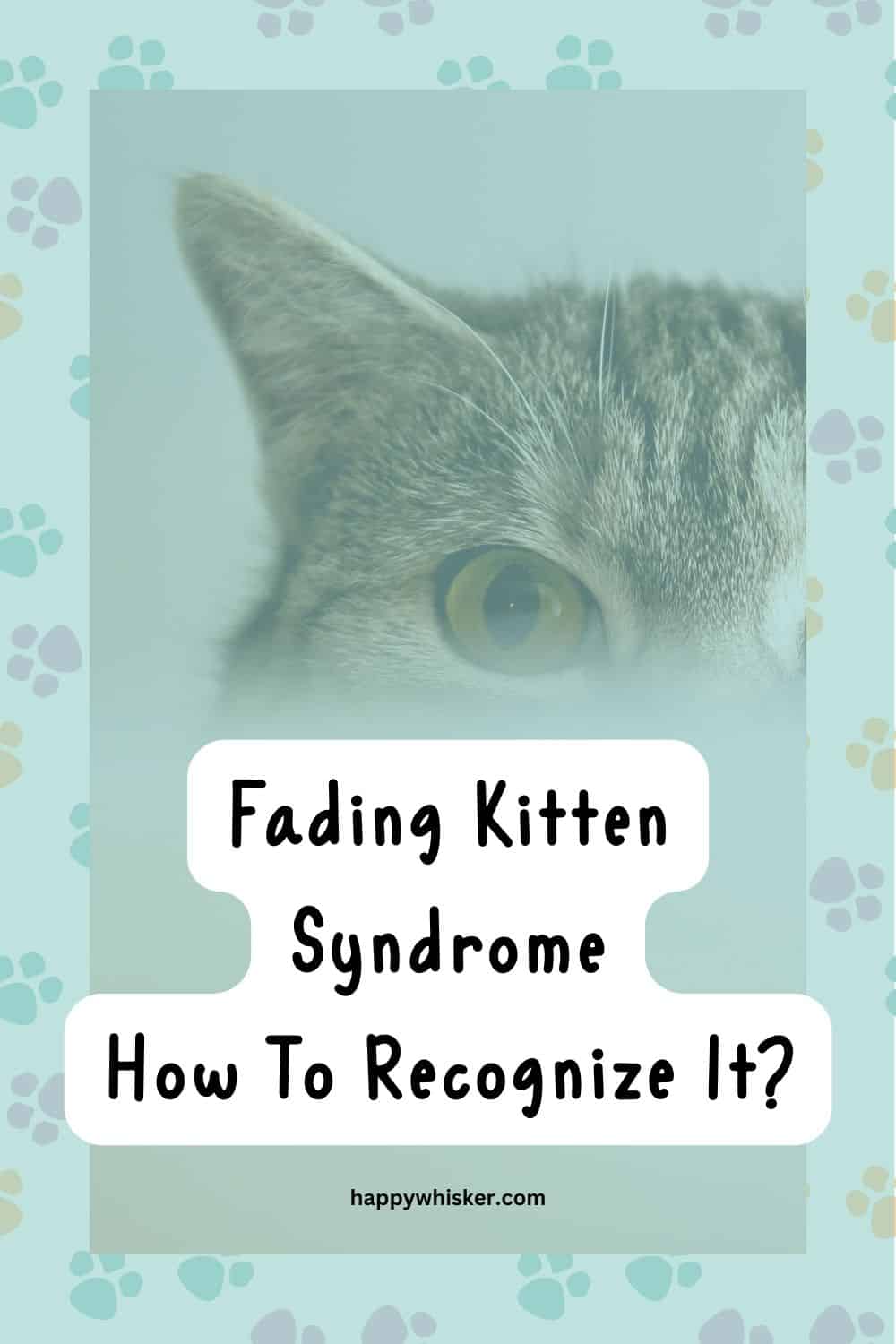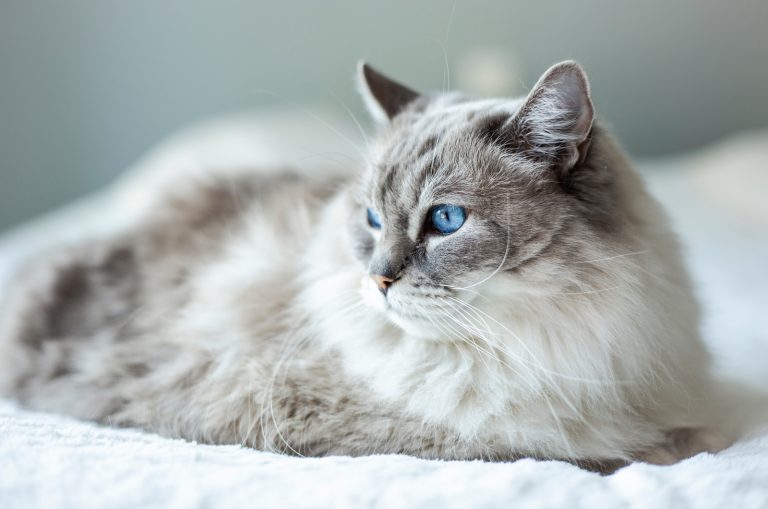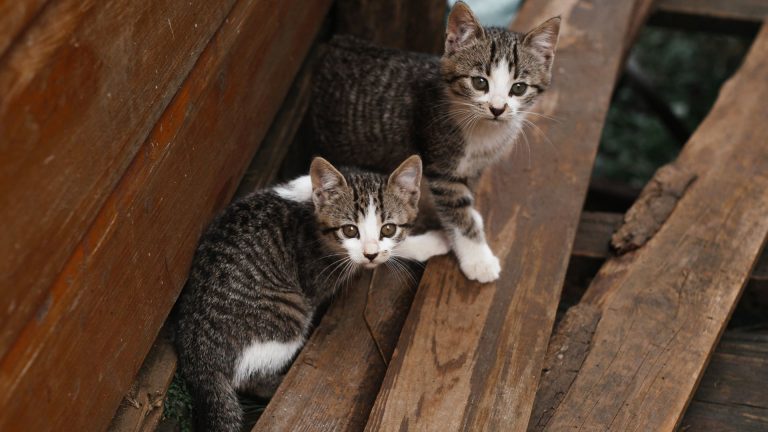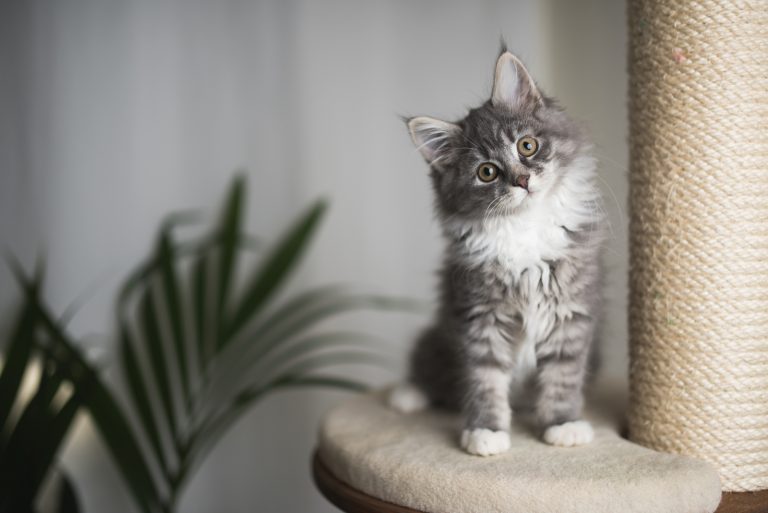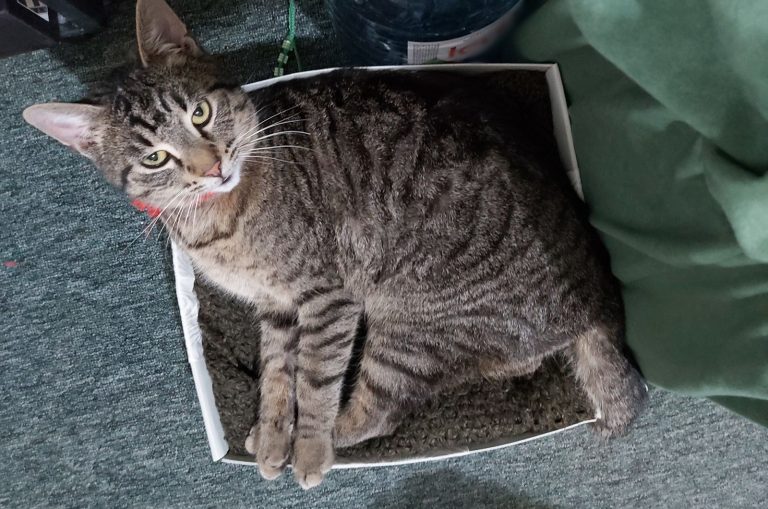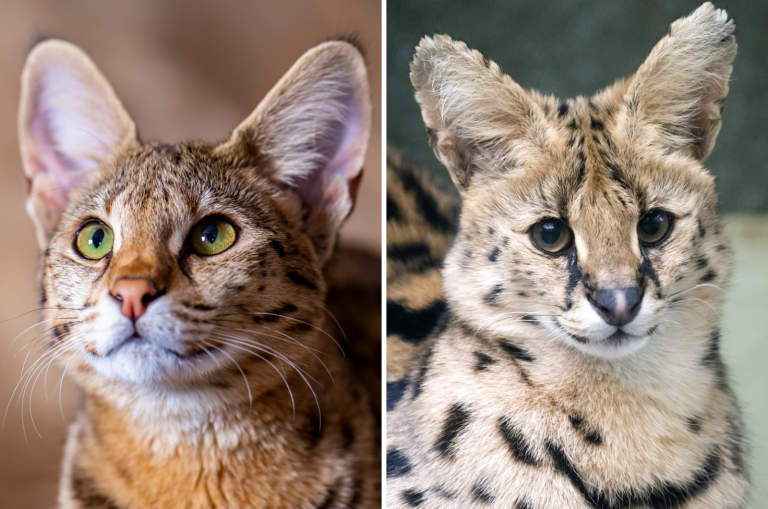Fading Kitten Syndrome – A Guide On How To Recognize It Early
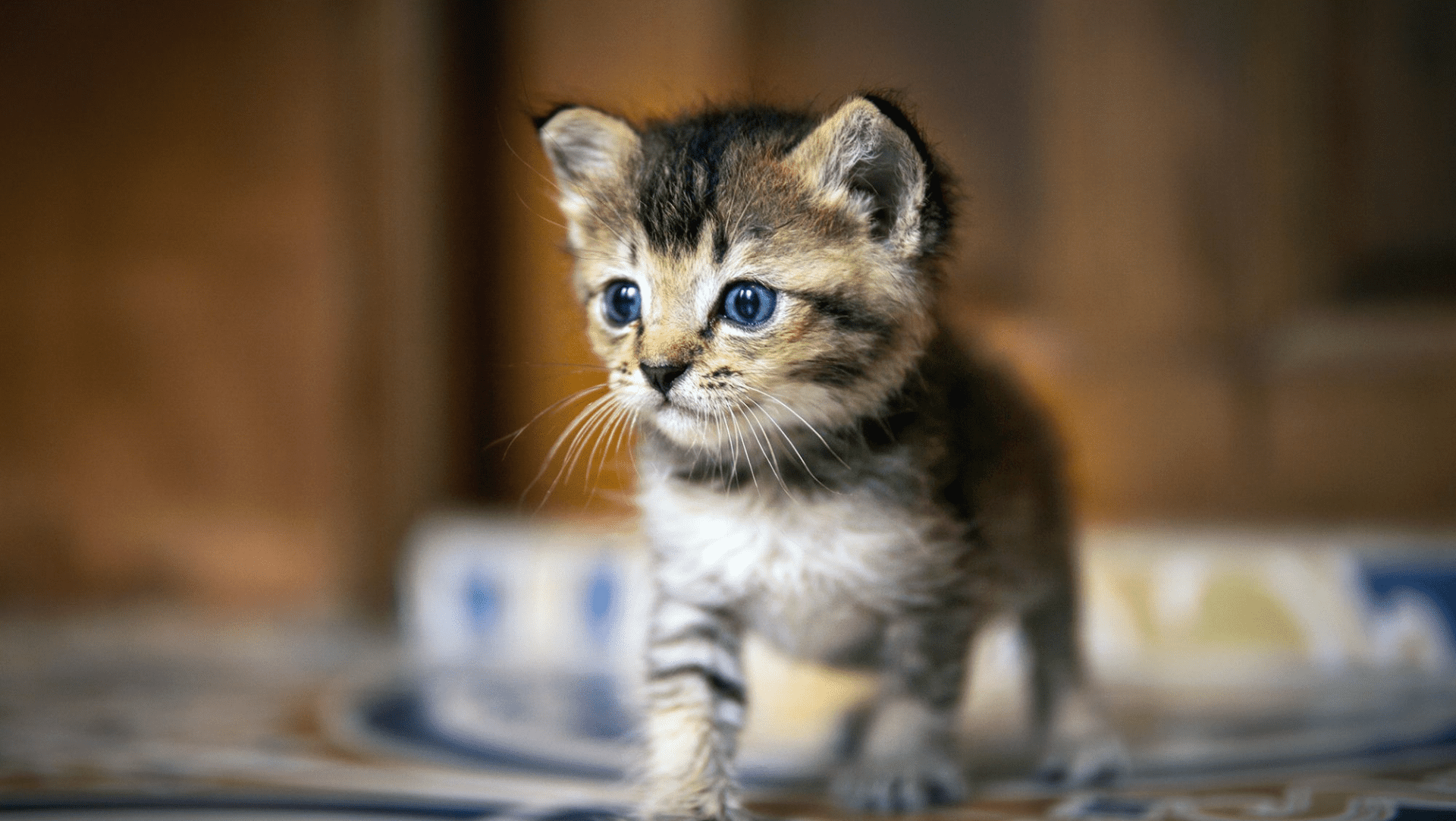
Expecting a new litter of kittens is an exciting time for many cat owners. However, the excitement is often accompanied by a few concerns: Will the labor go as it should? Will the mother cat be okay? Will all kittens be delivered safely? Will all of them be healthy?
One particular concern is one or more kittens developing fading kitten syndrome, a common cause of feline mortality.
One or more kittens in a litter may suffer from fading kitten syndrome (FKS), which causes them to appear healthy at birth but eventually become lethargic, sick, and even dead.
A kitten with FKS can recover without human intervention, but this is uncommon. In most cases, these kittens will die unless they receive human help.
Recognizing the signs and providing adequate care as soon as possible can improve the kitten’s chances of survival.
After reading this article, you will know how to recognize the signs of fading kitten syndrome and how you can help kittens suffering from it, so be sure to read on!
What Is Fading Kitten Syndrome?
Fading kitten syndrome refers to a set of ill-health symptoms displayed by kittens up to eight weeks old.
Fading kitten syndrome symptoms can appear anywhere from the kitten’s first week of life up to the kitten’s eighth week of life.
Here’s an overview of the essential information about fading kitten syndrome:
[table id=279 /]
At What Age Is Fading Kitten Syndrome Most Frequently Observed?
The first four to six weeks of a kitten’s life—the period between birth and weaning from its mother—is when fading kitten syndrome usually manifests.
Just because a kitten is perfectly healthy at birth, it does not mean it will not develop FKS later (for example, in the fourth week of life). Even if there are no prior symptoms of sickness, a kitten may suddenly become ill or even pass away due to FKS.
If a cat older than nine weeks is sick, it will not be suspected that it has fading kitten syndrome. By that time, kittens with FKS will have either passed away, or they will continue to live happy and healthy lives.
After 12 weeks, veterinarians typically do not consider a sick kitten to be dealing with fading kitten syndrome.
10 Common Symptoms Of Fading Kitten Syndrome
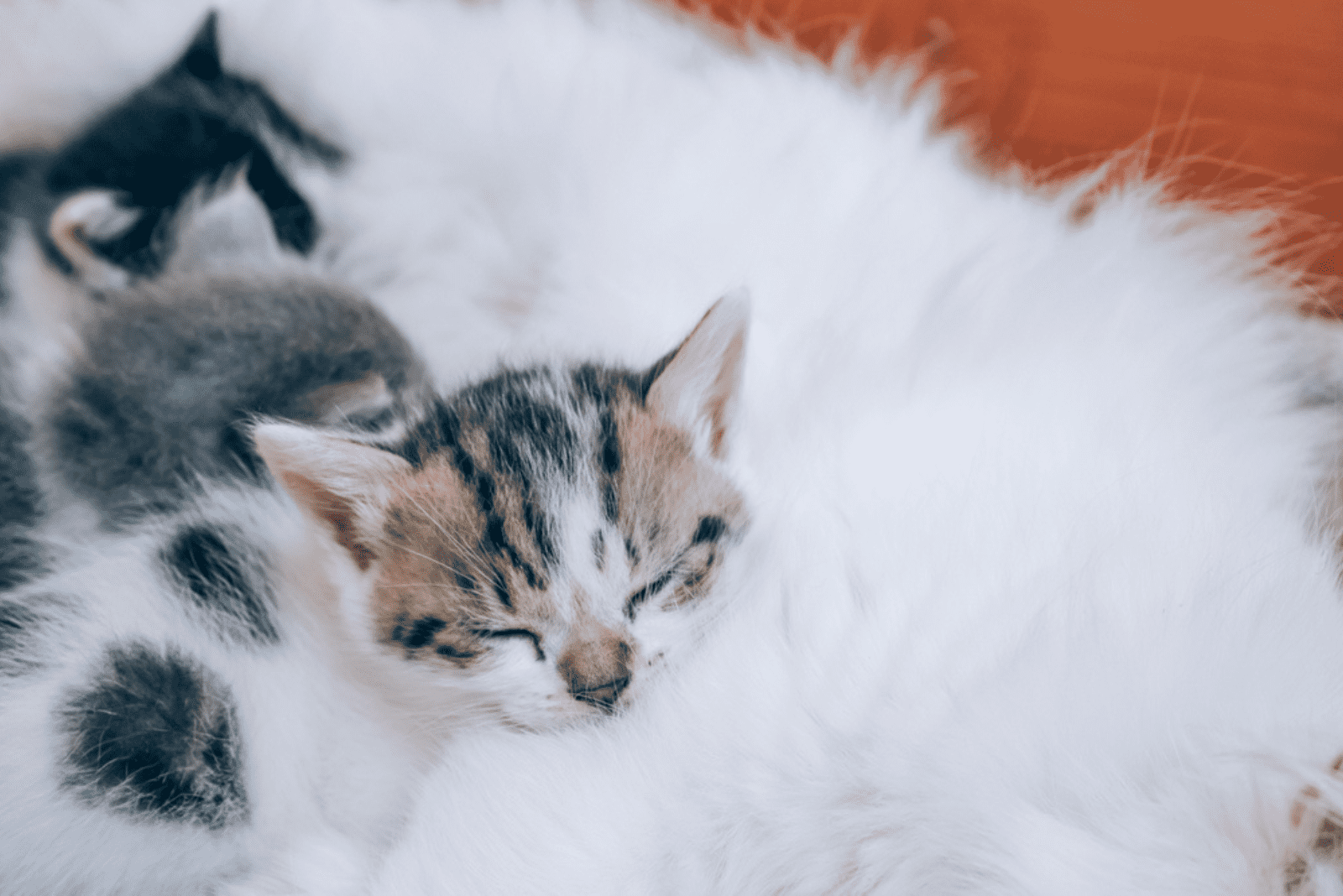
The most common symptoms cat owners need to be aware of are:
Weakness
A weak kitten is a kitten that’s not hitting the same developmental milestones as other healthy kittens. Weakness can be observed in the kitten’s inability to stand up properly, being unresponsive, lacking energy, and an inability to keep up with its littermates.
Lethargy
Lethargy results in your kitten displaying the following behaviors:
• Not being interested in daily activities
• Not being energetic
• Not playing with its littermates
• Hiding
• Sleeping more than other kittens
Low Body Temperature
A body temperature below 99F (or 37.2 °C) is considered a low body temperature. When you touch an affected kitten, you will immediately notice if they’re cold (colder than the average body temperature).
Hypothermia can lead to an irregular heartbeat, difficulty breathing, and diminished consciousness to the point of coma.
Not Eating Or Drinking
Kittens with FKS tend to have reduced appetite or no appetite at all. If the kitten hasn’t eaten in more than six hours, call your veterinarian immediately because hypoglycemia (very low blood sugar level) can strike young kittens who aren’t getting enough food.
Not Gaining Weight
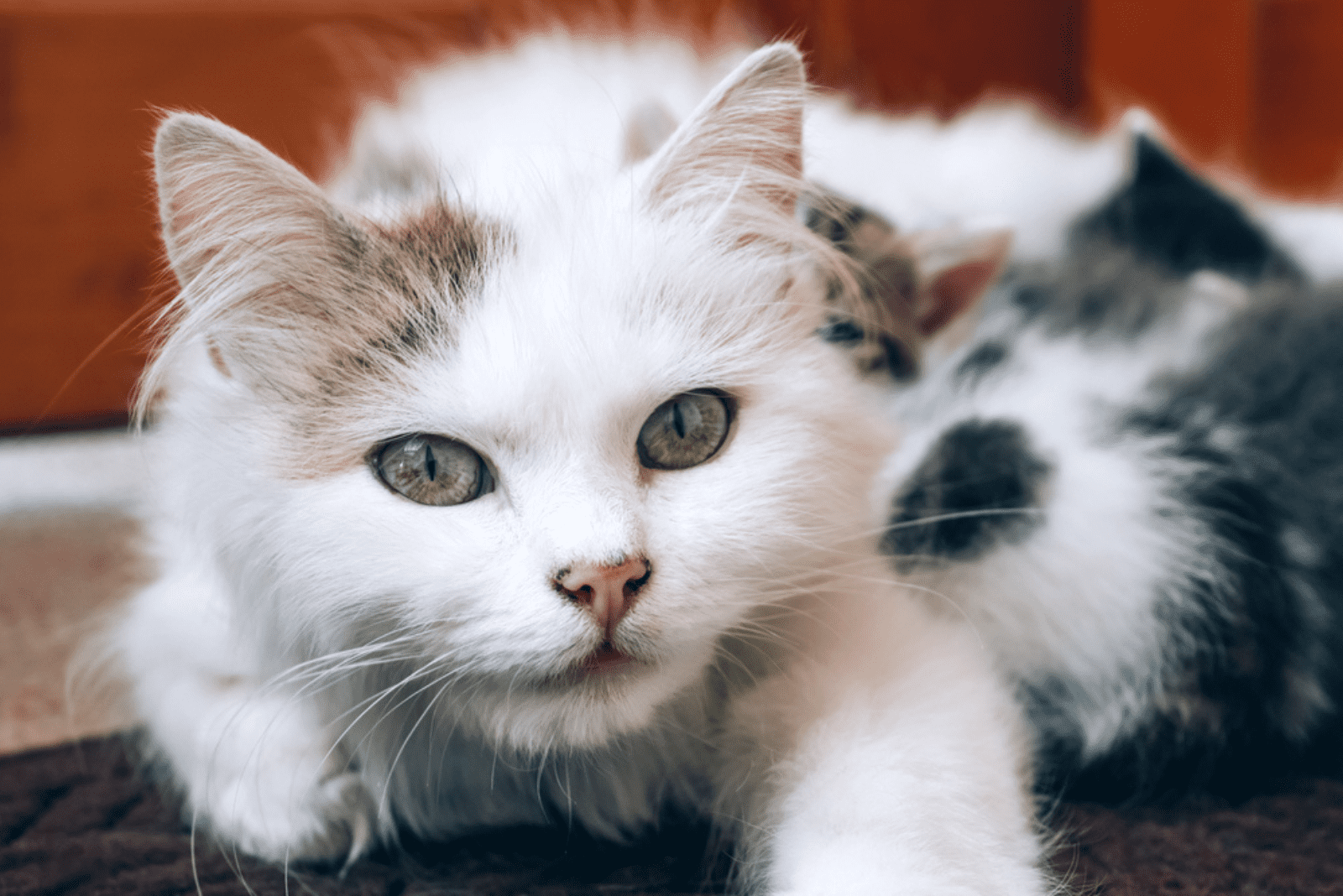
The kitten won’t put on weight if it isn’t eating enough.
Every day, a healthy kitten should gain 7 to 14 grams. One of the most prevalent signs of fading kitten syndrome is a kitten that is not gaining weight or which is losing weight.
Additionally, faded kittens frequently have low birth weights to start with, which causes even more problems.
Excessive Meowing Or Not Meowing At All
Excessive vocalization is also a common sign of fading kitten syndrome. You might notice your faded kitten is vocalizing differently than the other kittens and more frequently as well. Continuous crying is never a good sign.
On the other hand, not meowing is also a potential sign of FKS.
Labored Breathing
Exaggerated, labored breathing is a potential sign of faded kitten syndrome, especially when other symptoms are present. Faded kittens tend to have difficulty breathing, primarily due to a lung defect, and they often breathe with their mouth open.
Dull Hair Coat
Dull hair coat is another symptom of FKS, although not the most obvious one.
The leading cause of cats’ coats losing their sheen is poor nutrition. Poor nutrition can be due to the mother cat not having enough milk or the kitten simply refusing to eat.
Pale Gums
If you notice pale gums in a kitten, it could indicate anemia or poor blood circulation. If the gums are white, that indicates severe, life-threatening anemia.
Vomiting And Diarrhea
Vomiting and diarrhea are serious health issues that can lead to rapid fluid loss, and subsequent dehydration. Dehydration is never a good sign, and it can be observed when the kitten’s skin is not elastic.
How Can I Recognize Fading Kitten Syndrome On Time?
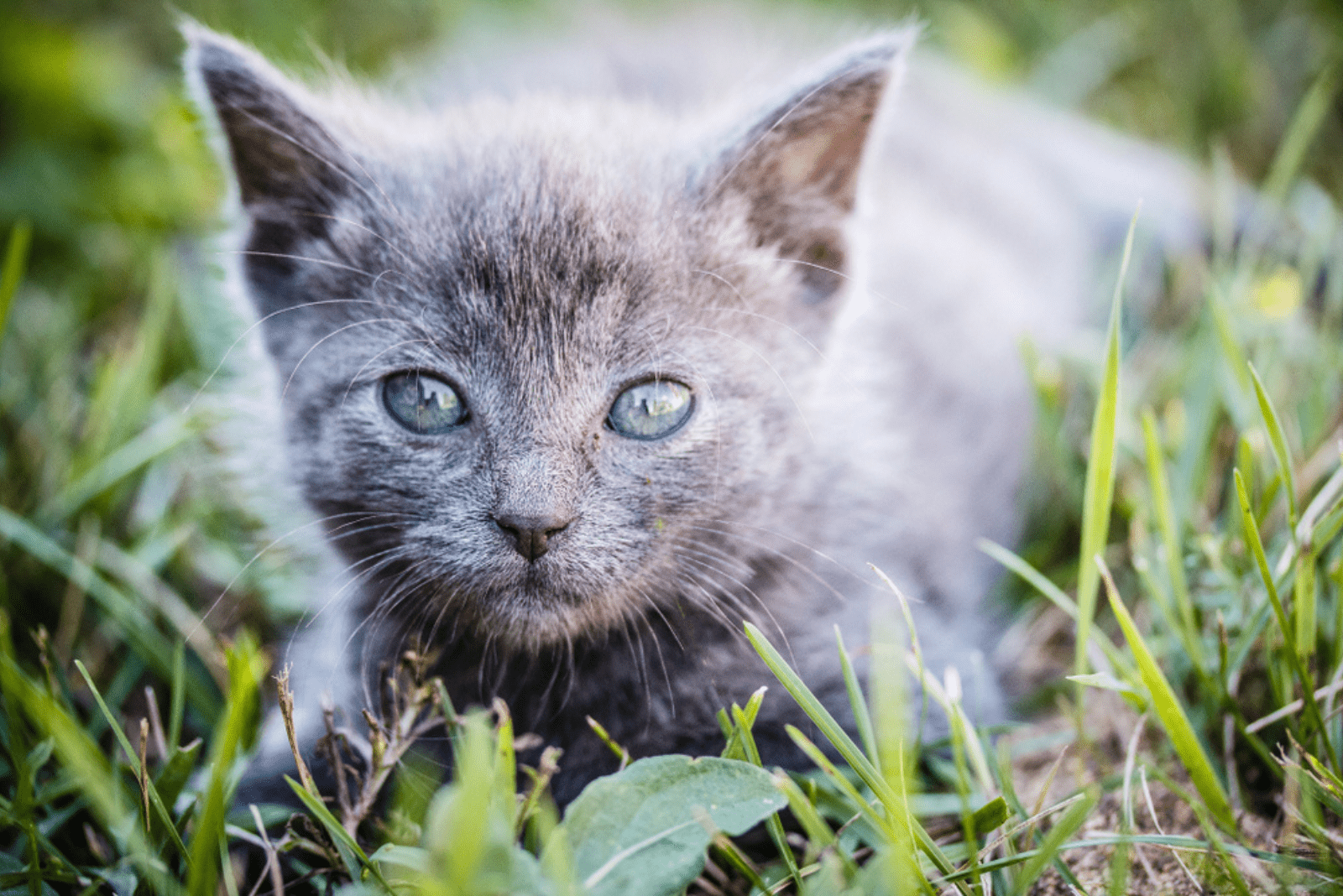
To recognize fading kitten syndrome on time, you need to pay close attention to all kittens within the litter.
The best thing you can do is monitor the kittens’ eating habits and weight gain daily. By doing this, you’ll be able to spot the early indications of FKS and contact your veterinarian right away.
An indication of fading kitten syndrome is seeing a lethargic kitten, a kitten who refuses to eat, or a kitten who seems to be left out of activities (such as playing with other kittens, nursing, or sleeping apart from the other kittens in the litter).
It’s crucial to recognize this syndrome’s early warning signs so that quick action can be taken.
Is Fading Kitten Syndrome Fatal?
Unfortunately, most kittens that develop FKS die, despite receiving medical attention. The greatest fatality rate is in kittens that develop FKS in the first week of life.
It is possible for kittens to die suddenly or to fade more slowly (over the course of days or weeks). While some kittens may pass away suddenly, it’s more common for an affected kitten’s health to deteriorate slowly over hours or days.
However, there is always a chance for a kitten with FKS to survive! A kitten with FKS may live if the underlying cause can be found and therapy is started quickly enough.
Therefore, noticing the symptoms on time is crucial for effective treatment and a positive outcome.
Can All Kittens Within A Litter Be Affected?
It is rare for all kittens within a litter to develop fading kitten syndrome, so you should not worry about your cat’s entire litter being affected by FKS.
Usually, one or two kittens are impacted. However, all littermates should be closely watched if one kitten has the condition.
The “fading” process may take hours, days, or even weeks to complete, sometimes beginning with just one kitten before affecting others in the litter.
Causes Of Fading Kitten Syndrome
Difficult Birth
If the mother cat has experienced feline dystocia (difficult birth), that could result in the kittens being weak and sick. For example, it may be that the kitten was not delivered on time, which causes medical issues for the kitten later on.
Genetic Defect
A common cause of a kitten’s failure to thrive is congenital defects (or birth defects) that impair the proper function of the kitten’s body. It could be that the kitten has gastrointestinal, brain, lung, heart defects or any other kind of body malformation.
Malnutrition
Proper nutrition is vital for newborn kittens. Good milk supply is one of the most important things for nursing kittens. Lack of milk supply can lead to malnutrition, especially if the kitten is not receiving any other kind of nutrition from the owner.
Neonatal Isoerythrolysis
When a mother cat and kitten have two different blood types, it can result in a condition called neonatal isoerythrolysis, which is when mother’s milk’s antibodies attack the kitten’s red blood cells.
Bacterial infections
Newborn kittens, especially those with underdeveloped immune systems, are prone to bacterial infections.
Infections with bacteria can develop in the digestive and respiratory systems, at the umbilical cord, or in wounds.
Viral Infections
Viral infections tend to take a toll on any cat’s body, especially a kitten’s. Some viruses can be transferred via the placenta or the mother’s milk. One such example is feline immunodeficiency virus (FIV)
Trauma
Sustained trauma is a potential cause of a kitten not developing properly. It could result from a mother cat not having properly developed maternal instincts and not treating the kitten(s) gently enough.
In Which Circumstances Is Fading Kitten Syndrome More Frequently Observed?
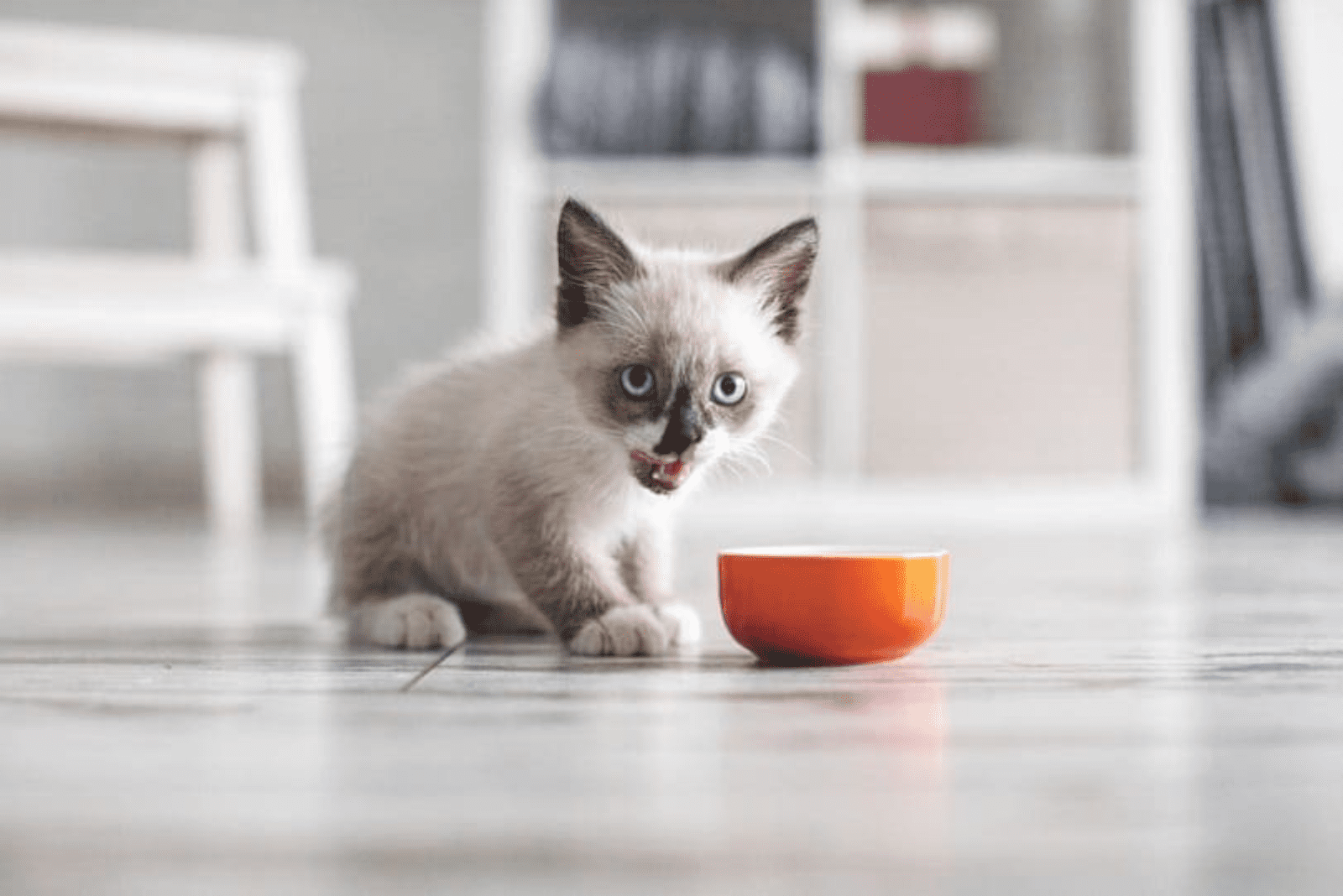
Fading kitten syndrome appears to occur more frequently in the following situations:
• If the kitten is delivered prematurely
• If the kitten has been rejected from the litter
• If the mother cat has a low milk supply
• If the mother cat is very young
• If the litter is a large one (more than five kittens)
• If the mother cat herself is sick in some way
By knowing which situations might result in faded kittens, you will be able to recognize the signs of FKS on time!
Is FKS Contagious?
FKS is a collection of symptoms that indicate a kitten is not developing properly. When discussing how contagious it may be, we need to consider the causes of FKS.
The actual fading kitten syndrome can not be spread to others. However, other kittens in the same litter will likely contract the same illness, for example, if the kitten dies due to a contagious parasite or virus.
It is advised to have the remaining kittens in the litter examined by a veterinarian after one kitten in the litter passes away to rule out any potentially infectious causes.
How Is FKS Diagnosed?
To make a precise diagnosis, a thorough examination must be conducted.
A veterinarian may get a detailed history from the cat owner, perform comprehensive physical tests on sick kittens to find common causes, and collect samples for laboratory testing (such as blood, urine, and feces).
Most of the time, veterinarians cannot determine why some kittens within the same litter fall ill and die while others recover.
As a precise cause of fading kitten syndrome is frequently impossible to pinpoint, 80% of FKS cases are undiagnosed.
How Is Fading Kitten Syndrome Treated?
If the specific cause of fading kitten syndrome can be found, the medical issue can be treated. The veterinarian will guide the treatment.
It is possible to treat fading kitten syndrome at home in some circumstances, but only if all medical causes, such as infections, congenital disabilities, allergies, etc., have been completely ruled out.
All cases of fading kitten syndrome are likely to require general supportive therapies/ symptomatic treatment.
Make Sure The Kitten Has Enough Energy
Providing ongoing nutrition is crucial to prevent hypoglycemia (low blood sugar) in newborn kittens.
Cat owners should ensure that the queens produce plenty of milk and that the kittens are latching on and sucking. If there are problems, dextrose-containing feeding solutions or kitten milk formulas should be used for supplemental feeding.
Rub honey, corn syrup, sugar water, or Karo syrup on the kitten’s gums if the kitten appears lethargic or weak, to raise blood sugar levels.
Make Sure The Kitten Is Hydrated
It is important to keep kittens well hydrated to prevent dehydration from contributing to fading kitten syndrome. In addition to making sure they are drinking plenty of milk, additional rehydrating fluids may be given via a bottle or, when done with a veterinarian’s approval, by tube feeding.
Make Sure The Kitten Is Warm
Neonatal kittens must be kept warm at all times, so extra warmth (such as that provided by heating pads and warm towels) is crucial both during the birthing process and during the first few weeks of life.
Make Sure The Kitten Is In A Clean Environment
The area where vulnerable kittens sleep, play, and eat must be kept clean and safe to prevent the growth of harmful bacteria and viruses. Making their environment as safe and orderly as possible will promote good health.
Make Sure To Visit A Vet As Soon As Possible
Taking your kitten to the doctor as soon as you notice symptoms is one of the most crucial things you can do for them.
Remember that it may take a kitten several hours to feel better and resume normal behavior. Even when the emergency procedures outlined above are strictly followed, fading kitten syndrome in a kitten may still be fatal.
FAQ
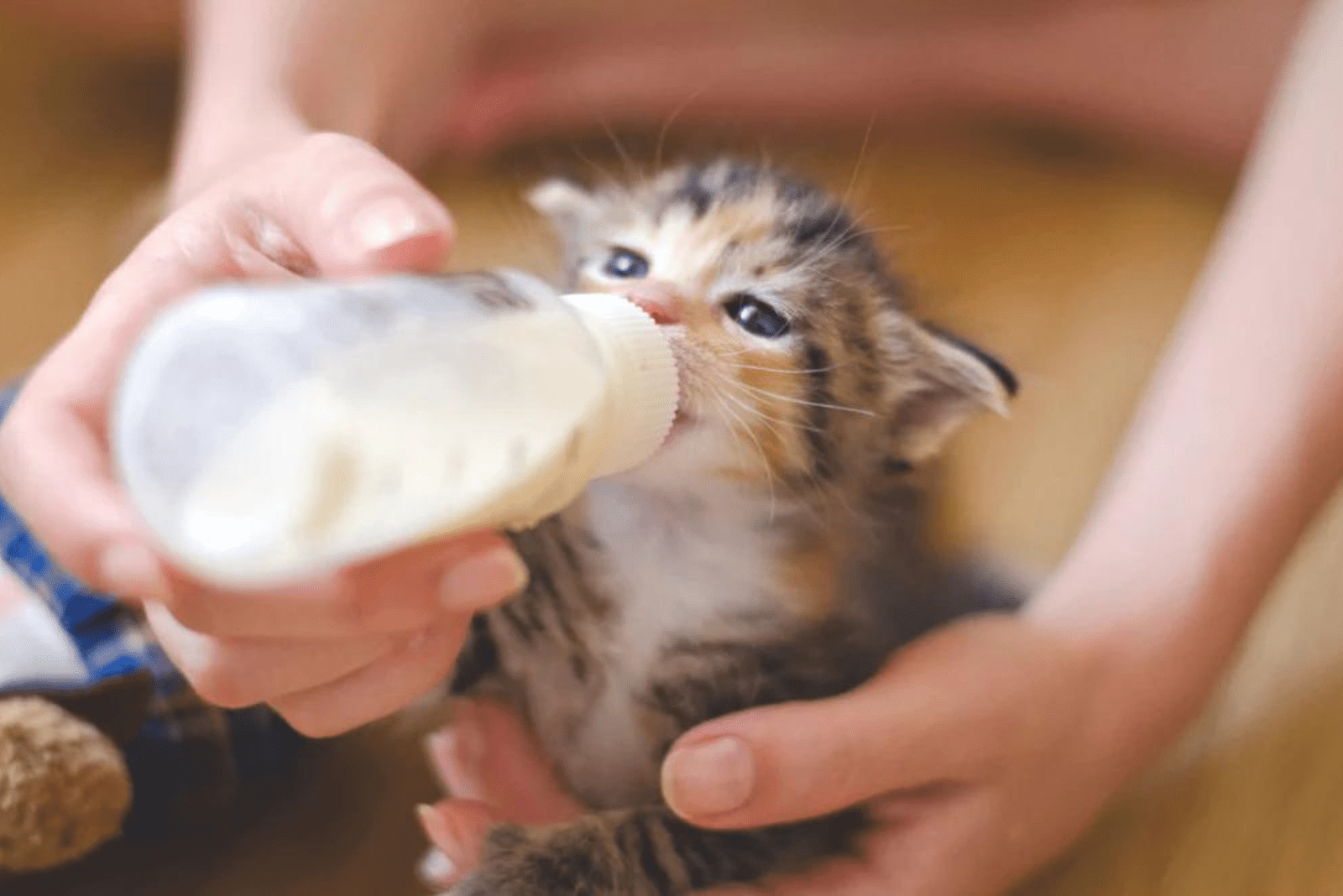
Is Fading Kitten Syndrome Rare?
Fading kitten syndrome is not as rare as you might think. According to some sources, up to 30% of kittens are affected by this severe condition.
How Does Fading Kitten Syndrome Affect The Cat?
Fading kitten syndrome is life threatening. If you think your kitten might be fading, get them to the vet immediately because they could become even sicker and die very quickly.
Can You Cure Fading Kitten Syndrome?
Although there isn’t a universal treatment for fading kitten syndrome, you can address its underlying causes.
This can involve taking antibiotics to treat infections, increasing core body temperature to ward off hypothermia, changing the diet, taking long-term or temporary medication, and more.
In Conclusion
Kitten care is a rewarding but often difficult task. This is especially true if one of the kittens under your care dies.
If the cause of death is fading kitten syndrome, you should know that there was probably nothing you could have done. FKS usually results in the sudden passing of a kitten, even if the kitten receives medical care.
Many kittens with fading kitten syndrome live very briefly after developing FKS.
However, fading kitten syndrome is not 100% fatal! Sometimes, if you spot the issue on time and treat it properly, the kitten can grow up to be a healthy adult cat!
Kittens with FKS can regain full health and lead fulfilling lives when the underlying causes are identified and successfully treated. A trip to your vet is the best course of action for treating this condition.
If you notice a kitten showing signs of FKS, you need to provide them with proper nutrition, hydration, and heat.
However, the best course of action is to take a fading kitten to your veterinarian as soon as possible! In this way, all medical issues will be handled quickly and expertly!
Related Articles:
When Do Kittens Start Pooping & Useful Tips
How Long Can Kittens Go Without Food? Everything You Need To Know!
Can Kittens Drink Water? What’s Best For Them?
Like this post? Share or pin it for later!
